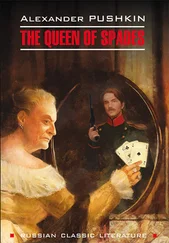Aleksandr Sergeyevich Pushkin
The Daughter of the Commandant
Quality of Life, Freedom, More time with the ones you Love.
Visit our website: LYFREEDOM.COM
Chapter
1
My father, Andréj Petróvitch Grineff, after serving in his youth under Count Münich,[1] had retired in 17—with the rank of senior major. Since that time he had always lived on his estate in the district of Simbirsk, where he married Avdotia, the eldest daughter of a poor gentleman in the neighbourhood. Of the nine children born of this union I alone survived; all my brothers and sisters died young. I had been enrolled as sergeant in the Séménofsky regiment by favour of the major of the Guard, Prince Banojik, our near relation. I was supposed to be away on leave till my education was finished. At that time we were brought up in another manner than is usual now. From five years old I was given over to the care of the huntsman, Savéliitch,[2] who from his steadiness and sobriety was considered worthy of becoming my attendant. Thanks to his care, at twelve years old I could read and write, and was considered a good judge of the points of a greyhound. At this time, to complete my education, my father hired a Frenchman, M. Beaupré, who was imported from Moscow at the same time as the annual provision of wine and Provence oil. His arrival displeased Savéliitch very much. "It seems to me, thank heaven," murmured he, "the child was washed, combed, and fed. What was the good of spending money and hiring a 'moussié,' as if there were not enough servants in the house?" Beaupré, in his native country, had been a hairdresser, then a soldier in Prussia, and then had come to Russia to be "outchitel," without very well knowing the meaning of this word.[3] He was a good creature, but wonderfully absent and hare-brained. His greatest weakness was a love of the fair sex. Neither, as he said himself, was he averse to the bottle, that is, as we say in Russia, that his passion was drink. But, as in our house the wine only appeared at table, and then only in liqueur glasses, and as on these occasions it somehow never came to the turn of the "outchitel" to be served at all, my Beaupré soon accustomed himself to the Russian brandy, and ended by even preferring it to all the wines of his native country as much better for the stomach. We became great friends, and though, according to the contract, he had engaged himself to teach me French, German, and all the sciences, he liked better learning of me to chatter Russian indifferently. Each of us busied himself with our own affairs; our friendship was firm, and I did not wish for a better mentor. But Fate soon parted us, and it was through an event which I am going to relate. The washerwoman, Polashka, a fat girl, pitted with small-pox, and the one-eyed cow-girl, Akoulka, came one fine day to my mother with such stories against the "moussié," that she, who did not at all like these kind of jokes, in her turn complained to my father, who, a man of hasty temperament, instantly sent for that rascal of a Frenchman. He was answered humbly that the "moussié" was giving me a lesson. My father ran to my room. Beaupré was sleeping on his bed the sleep of the just. As for me, I was absorbed in a deeply interesting occupation. A map had been procured for me from Moscow, which hung against the wall without ever being used, and which had been tempting me for a long time from the size and strength of its paper. I had at last resolved to make a kite of it, and, taking advantage of Beaupré's slumbers, I had set to work. My father came in just at the very moment when I was tying a tail to the Cape of Good Hope. At the sight of my geographical studies he boxed my ears sharply, sprang forward to Beaupré's bed, and, awaking him without any consideration, he began to assail him with reproaches. In his trouble and confusion Beaupré vainly strove to rise; the poor "outchitel" was dead drunk. My father pulled him up by the collar of his coat, kicked him out of the room, and dismissed him the same day, to the inexpressible joy of Savéliitch. Thus was my education finished. I lived like a stay-at-home son (nédoross'l),[4] amusing myself by scaring the pigeons on the roofs, and playing leapfrog with the lads of the courtyard,[5] till I was past the age of sixteen. But at this age my life underwent a great change. One autumn day, my mother was making honey jam in her parlour, while, licking my lips, I was watching the operations, and occasionally tasting the boiling liquid. My father, seated by the window, had just opened the Court Almanack, which he received every year. He was very fond of this book; he never read it except with great attention, and it had the power of upsetting his temper very much. My mother, who knew all his whims and habits by heart, generally tried to keep the unlucky book hidden, so that sometimes whole months passed without the Court Almanack falling beneath his eye. On the other hand, when he did chance to find it, he never left it for hours together. He was now reading it, frequently shrugging his shoulders, and muttering, half aloud— "General! He was sergeant in my company. Knight of the Orders of Russia! Was it so long ago that we—" At last my father threw the Almanack away from him on the sofa, and remained deep in a brown study, which never betokened anything good. "Avdotia Vassiliéva,"[6] said he, sharply addressing my mother, "how old is Petróusha?"[7] "His seventeenth year has just begun," replied my mother. "Petróusha was born the same year our Aunt Anastasia Garasimofna[8] lost an eye, and that—" "All right," resumed my father; "it is time he should serve. 'Tis time he should cease running in and out of the maids' rooms and climbing into the dovecote." The thought of a coming separation made such an impression on my mother that she dropped her spoon into her saucepan, and her eyes filled with tears. As for me, it is difficult to express the joy which took possession of me. The idea of service was mingled in my mind with the liberty and pleasures offered by the town of Petersburg. I already saw myself officer of the Guard, which was, in my opinion, the height of human happiness. My father neither liked to change his plans, nor to defer the execution of them. The day of my departure was at once fixed. The evening before my father told me that he was going to give me a letter for my future superior officer, and bid me bring him pen and paper. "Don't forget, Andréj Petróvitch," said my mother, "to remember me to Prince Banojik; tell him I hope he will do all he can for my Petróusha." "What nonsense!" cried my father, frowning. "Why do you wish me to write to Prince Banojik?" "But you have just told us you are good enough to write to Petróusha's superior officer." "Well, what of that?" "But Prince Banojik is Petróusha's superior officer. You know very well he is on the roll of the Séménofsky regiment." "On the roll! What is it to me whether he be on the roll or no? Petróusha shall not go to Petersburg! What would he learn there? To spend money and commit follies. No, he shall serve with the army, he shall smell powder, he shall become a soldier and not an idler of the Guard, he shall wear out the straps of his knapsack. Where is his commission? Give it to me." My mother went to find my commission, which she kept in a box with my christening clothes, and gave it to my father with, a trembling hand. My father read it with attention, laid it before him on the table, and began his letter. Curiosity pricked me. "Where shall I be sent," thought I, "if not to Petersburg?" I never took my eyes off my father's pen as it travelled slowly over the paper. At last he finished his letter, put it with my commission into the same cover, took off his spectacles, called me, and said— "This letter is addressed to Andréj Karlovitch R.
Читать дальше












